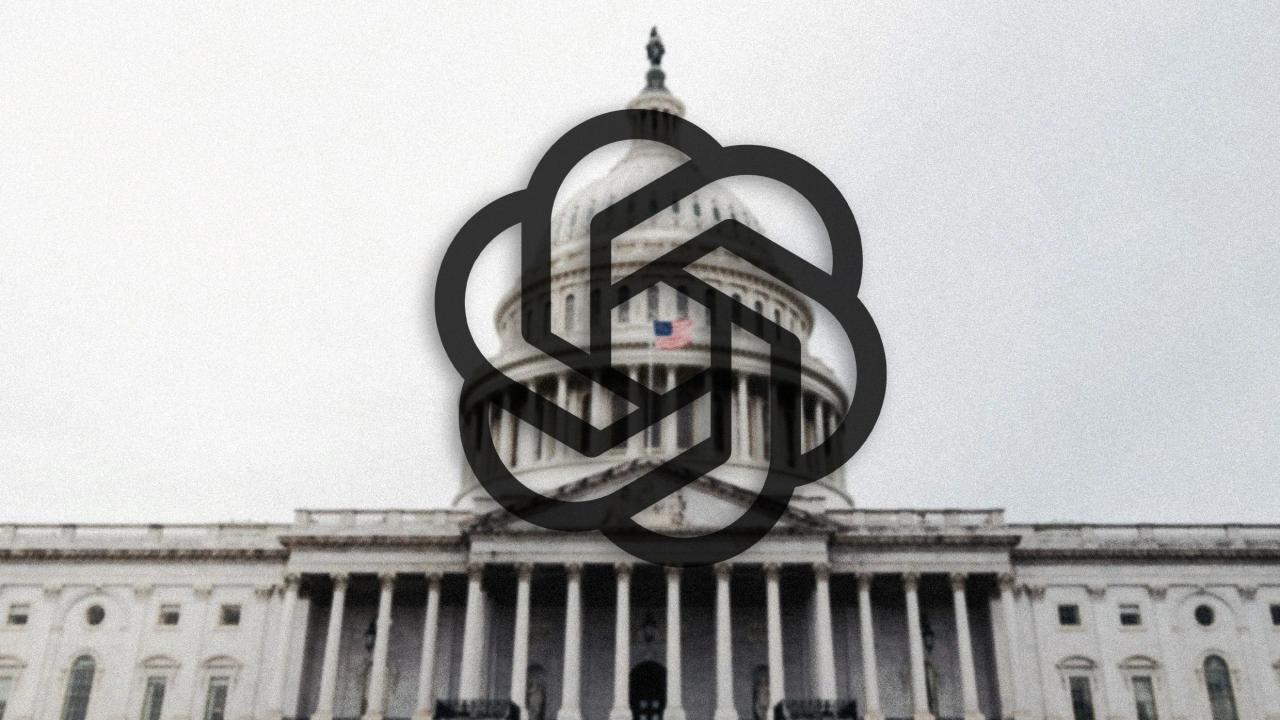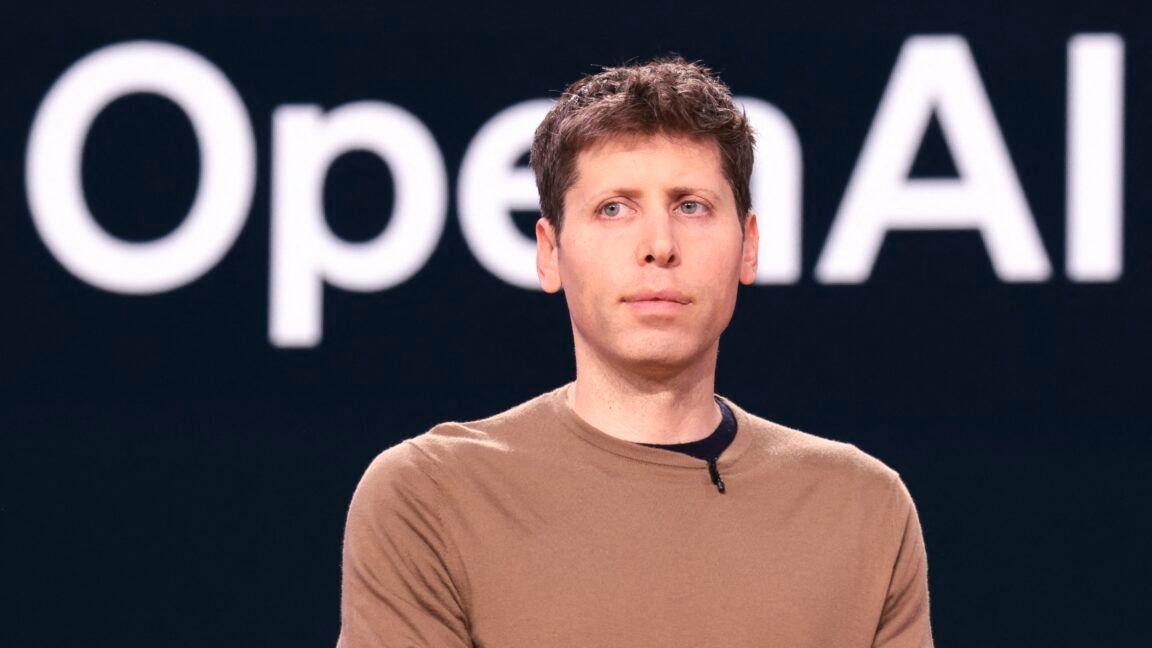Anthropic Unveils Custom AI Models for U.S. National Security
6 Sources
6 Sources
[1]
Anthropic unveils custom AI models for U.S. national security customers | TechCrunch
The new models, a custom set of "Claude Gov" models, were "built based on direct feedback from our government customers to address real-world operational needs," writes Anthropic in a blog post. Compared to Anthropic's consumer- and enterprise-focused models, the new custom Claude Gov models were designed to be applied to government operations like strategic planning, operational support, and intelligence analysis. "[These] models are already deployed by agencies at the highest level of U.S. national security, and access to these models is limited to those who operate in such classified environments," writes Anthropic in its post. "[They] underwent the same rigorous safety testing as all of our Claude models." Anthropic has increasingly engaged U.S. government customers as it looks for dependable new sources of revenue. In November, the company teamed up with Palantir and AWS, the cloud computing division of Anthropic's major partner and investor, Amazon, to sell Anthropic's AI to defense customers. Anthropic says that its new custom Claude Gov models better handle classified material, "refuse less" when engaging with classified information, and have a greater understanding of documents within intelligence and defense contexts. The models also have "enhanced proficiency" in languages and dialects critical to national security operations, Anthropic says, as well as "improved understanding and interpretation of complex cybersecurity data for intelligence analysis." Anthropic isn't the only top AI lab going after defense contracts. OpenAI is seeking to establish a closer relationship with the U.S. Defense Department, and Meta recently revealed that it's making its Llama models available to defense partners. Google is refining a version of its Gemini AI capable of working within classified environments. Meanwhile, Cohere, which primarily builds AI products for businesses, is also collaborating with Palantir to deploy its AI models, TechCrunch exclusively reported early last December.
[2]
Anthropic's new AI models for classified info are already in use by US gov
The release follows a broader trend of increased ties between AI companies and the US government amidst uncertain AI policy. Roughly five weeks before President Donald Trump announces his administration's AI policy, major AI companies are continuing to strengthen their ties to government -- specifically for national security customers. On Thursday, Anthropic announced Claude Gov, a family of models "exclusively for US national security customers," it said in the release. Claude Gov is intended for everything from operations to intelligence and threat analysis, and is designed to interpret classified documents and defense contexts. It also features improved language and dialect proficiency as well as enhanced interpretation of cybersecurity data. Also: Anthropic's popular Claude Code AI tool now included in its $20/month Pro plan "The models are already deployed by agencies at the highest level of US national security, and access to these models is limited to those who operate in such classified environments," the company said. Developed with feedback from Anthropic's government users, the company said Claude Gov has undergone its standard of safety testing (which the company applies to all Claude models). In the release, Anthropic reiterated its commitment to safe, responsible AI, assuring that Claude Gov is no different. The announcement comes several months after OpenAI released ChatGPT Gov in January of this year, indicating a broader public shift in major AI labs to explicitly serve government use cases with fine-tuned products. The National Guard already uses Google AI to improve its disaster response. (Disclosure: Ziff Davis, ZDNET's parent company, filed an April 2025 lawsuit against OpenAI, alleging it infringed Ziff Davis copyrights in training and operating its AI systems.) Prior to the Trump administration, military and other defense-related contracts between AI companies and the US government weren't nearly as publicized, especially amidst shifting usage guidelines at companies like OpenAI, which had originally vowed not to engage in weapons creation. Google has recently gone through similar guideline revisions, despite maintaining claims to responsible AI. Also: Anthropic mapped Claude's morality. Here's what the chatbot values (and doesn't) The increasing ties between the government and AI companies are taking place in the larger context of the Trump administration's impending AI Action Plan, slated for July 19. Since Trump took office, AI companies have adjusted Biden-era responsibility commitments, originally made with the US AI Safety Institute, as Trump rolled back any regulation Biden put in place. OpenAI has been advocating for less regulation in exchange for government access to models. Alongside Anthropic, it has also cozied up to the government in new ways, including through scientific partnerships and the $500 billion Stargate initiative, all while the Trump administration cuts staff and funding for AI and other science-related initiatives within the US government. Get the morning's top stories in your inbox each day with our Tech Today newsletter.
[3]
Anthropic Rolls Out New AI Models for US National Security
OpenAI competitor Anthropic, which makes the Claude chatbot, is rolling out a new set of AI models built specifically for US national security use cases. Governments using these types of large language models for national security is nothing new; both OpenAI and Anthropic's tech is already used by the US government for these types of use cases. Meanwhile, governments farther afield, including Israel, have allegedly used US-made AI models -- directly or indirectly (though some of these claims have been denied). Anthropic says the new models -- which come as part of its government-focused offering Claude Gov -- will provide benefits like improved handling of classified materials and a greater understanding of documents and information "within the intelligence and defense contexts." The Amazon-backed AI start-up also said that the new models will provide "enhanced proficiency" in languages and dialects that are important to US national security operations, though it didn't specify exactly what these languages were. The models are also set to offer cybersecurity functionality, with the company saying they offer improved "understanding and interpretation" of cybersecurity data for intelligence analysts. But if you're reading this, there is a good chance you won't be able to try out a lot of these AI-for-spies models yourself. Anthropic clearly states that access to these models is limited to "those who operate in such classified environments." Anthropic has been fairly public about its desire to build closer links to intelligence services. Just last month, the start-up submitted a 10-page document to the US Office of Science and Technology Policy (OSTP) arguing that "Classified communication channels between AI labs and intelligence agencies" could help the US deal with national security threats, while calling for "expedited security clearances for industry professionals." But Big AI, increasingly linking up with national security interests, has attracted some high-profile detractors. Famed whistleblower Edward Snowden dubbed OpenAI's decision last year to appoint retired US Army General and NSA Director Paul Nakasone to a senior position within the company a "willful, calculated betrayal."
[4]
Anthropic is building new Claude AI models specifically for US national security designed to handle classified information
Anthropic has unveiled a series of AI models designed specifically for use by US government entities. The models, named "Claude Gov", are designed to assist the US government in strategic planning, operational support, and intelligence analysis. The models are specifically trained to handle classified information and the context of intelligence and defense, and have also been modified to "refuse less" when handling classified data. "[These] models are already deployed by agencies at the highest level of U.S. national security, and access to these models is limited to those who operate in such classified environments. [They] underwent the same rigorous safety testing as all of our Claude models," Anthropic said in its announcement. It's not just Anthropic which has started pitching models to the US government. OpenAI and Meta have both recently revealed their willingness to provide AI models for US government use. Anthropic and Cohere have also separately collaborated with Palantir to develop AI models for government use. Palantir itself is also seeking government contracts, and the development of "ImmigrationOS" for the US Immigration and Custom Enforcement (ICE). The new Claude Gov models have enhanced capabilities over other enterprise models developed by Anthropic, including "enhanced proficiency" in languages critical to US national security, and a better understanding of cybersecurity lingo. The White House recently pushed two 'America First' AI directives which aim to trade safeguards in return for faster modernization and greater department efficiency.
[5]
Anthropic releases AI models exclusive to US national security customers - SiliconANGLE
Anthropic releases AI models exclusive to US national security customers Generative artificial intelligence startup Anthropic PBC today introduced a custom set of new AI models exclusively for United States national security customers. The company said the new models are already deployed "by agencies at the highest level of U.S. national security," and access is highly restricted to classified environments. These new models, dubbed Claude Gov, were developed based on feedback from government customers to address real-world operational needs and meet national security requirements while aligning with the company's commitment to safety. Anthropic has attempted to make a name for itself in the AI industry by developing and training AI models designed to produce less harmful results using a concept the company calls "Constitutional AI." This is a learning system for AI that imbues the model with a set of positive values it should follow. The vision of this constitutional system is designed to make outputs less toxic or likely to become harmful by having another AI supervise its responses and also revise its own based on those responses. The company said U.S. national security customers will be able to use the new models for numerous applications including strategic planning and operational support for intelligence analysis and threat assessment. "This builds on our commitment to bring responsible and safe AI solutions to our U.S. national security customers, with custom models that are built to address the unique needs of classified environments," said Anthropic. The specialized models have a greater understanding of documents and information within intelligence fields and defense contexts, enhanced proficiency for languages and dialects "critical to national security operations" and have improved handling for classified materials, as the models will refuse less often when asked to engage with classified information.
[6]
OpenAI and Anthropic are getting cozy with government. What could possibly go wrong?
It's unsurprising that big tech companies are rolling out their own specialist models to meet that demand. Anthropic, the maker of the Claude chatbot, announced last week a series of models tailored for use by government employees. These include features such as the ability to handle classified materials and understand some of the bureaucratic language that plagues official documents. Anthropic has said its models are already deployed by agencies "at the highest level of U.S. national security, and access to these models is limited to those who operate in such classified environments." The announcement follows a similar one by OpenAI, the makers of ChatGPT, which released its own government-tailored AI models in January to "streamline government agencies' access to OpenAI's frontier models." But AI experts worry about governments becoming overly reliant on AI models, which can hallucinate information, inherit biases that discriminate against certain groups at scale, or steer policy in misguided directions. They also express concern over governments being locked into specific providers, who may later increase prices that taxpayers would be left to fund.
Share
Share
Copy Link
Anthropic has introduced a new set of AI models called "Claude Gov" specifically designed for U.S. national security customers, featuring enhanced capabilities for handling classified information and intelligence analysis.
Anthropic Introduces Claude Gov for National Security
Anthropic, a leading AI company, has unveiled a new set of custom AI models called "Claude Gov" specifically designed for U.S. national security customers
1
. These models, built based on direct feedback from government clients, are aimed at addressing real-world operational needs in classified environments2
.
Source: SiliconANGLE
Enhanced Capabilities for National Security
Claude Gov models offer several key improvements over Anthropic's consumer and enterprise-focused models:
- Better handling of classified material and reduced refusal when engaging with classified information
1
4
. - Greater understanding of documents within intelligence and defense contexts
1
2
. - Enhanced proficiency in languages and dialects critical to national security operations
1
3
. - Improved interpretation of complex cybersecurity data for intelligence analysis
1
5
.
These specialized models are designed to assist in various applications, including strategic planning, operational support, intelligence analysis, and threat assessment
5
.Deployment and Access
Anthropic has stated that Claude Gov models are already deployed by agencies at the highest level of U.S. national security
1
2
. Access to these models is strictly limited to those operating in classified environments, ensuring their exclusive use for national security purposes4
.Industry Trend: AI Companies and Government Collaboration
The introduction of Claude Gov is part of a broader trend of increased collaboration between major AI companies and the U.S. government, particularly in the national security sector:
- OpenAI is seeking closer ties with the U.S. Defense Department and has released ChatGPT Gov
2
3
. - Meta is making its Llama models available to defense partners
1
. - Google is refining a version of its Gemini AI for classified environments
1
. - Cohere is collaborating with Palantir to deploy AI models for government use
1
4
.
This trend comes amidst evolving AI policies and regulations, with some companies adjusting their previous commitments to responsible AI development
2
.
Source: Fast Company
Related Stories
Safety and Ethical Considerations
Anthropic emphasizes that Claude Gov models have undergone the same rigorous safety testing as all their Claude models
1
5
. The company reiterates its commitment to safe and responsible AI development, assuring that these specialized models align with their ethical standards2
.Implications and Concerns
The increasing collaboration between AI companies and national security agencies has raised some concerns. Critics, including whistleblower Edward Snowden, have expressed reservations about the potential implications of these partnerships
3
. The development of AI models for classified environments also highlights the growing role of artificial intelligence in national security operations and decision-making processes.
Source: ZDNet
As AI continues to play an increasingly significant role in government and defense applications, the balance between technological advancement, national security, and ethical considerations remains a topic of ongoing debate and scrutiny.
References
Summarized by
Navi
[3]
Related Stories
Anthropic Partners with Palantir and AWS to Bring AI to US Defense and Intelligence
08 Nov 2024•Technology

Anthropic's AI Restrictions Spark Tension with Trump Administration
18 Sept 2025•Policy and Regulation

Anthropic Challenges OpenAI with $1 AI Deal for All U.S. Government Branches
12 Aug 2025•Policy and Regulation

Recent Highlights
1
ByteDance Faces Hollywood Backlash After Seedance 2.0 Creates Unauthorized Celebrity Deepfakes
Technology

2
Microsoft AI chief predicts artificial intelligence will automate most white-collar jobs in 18 months
Business and Economy

3
Google reports state-sponsored hackers exploit Gemini AI across all stages of cyberattacks
Technology





